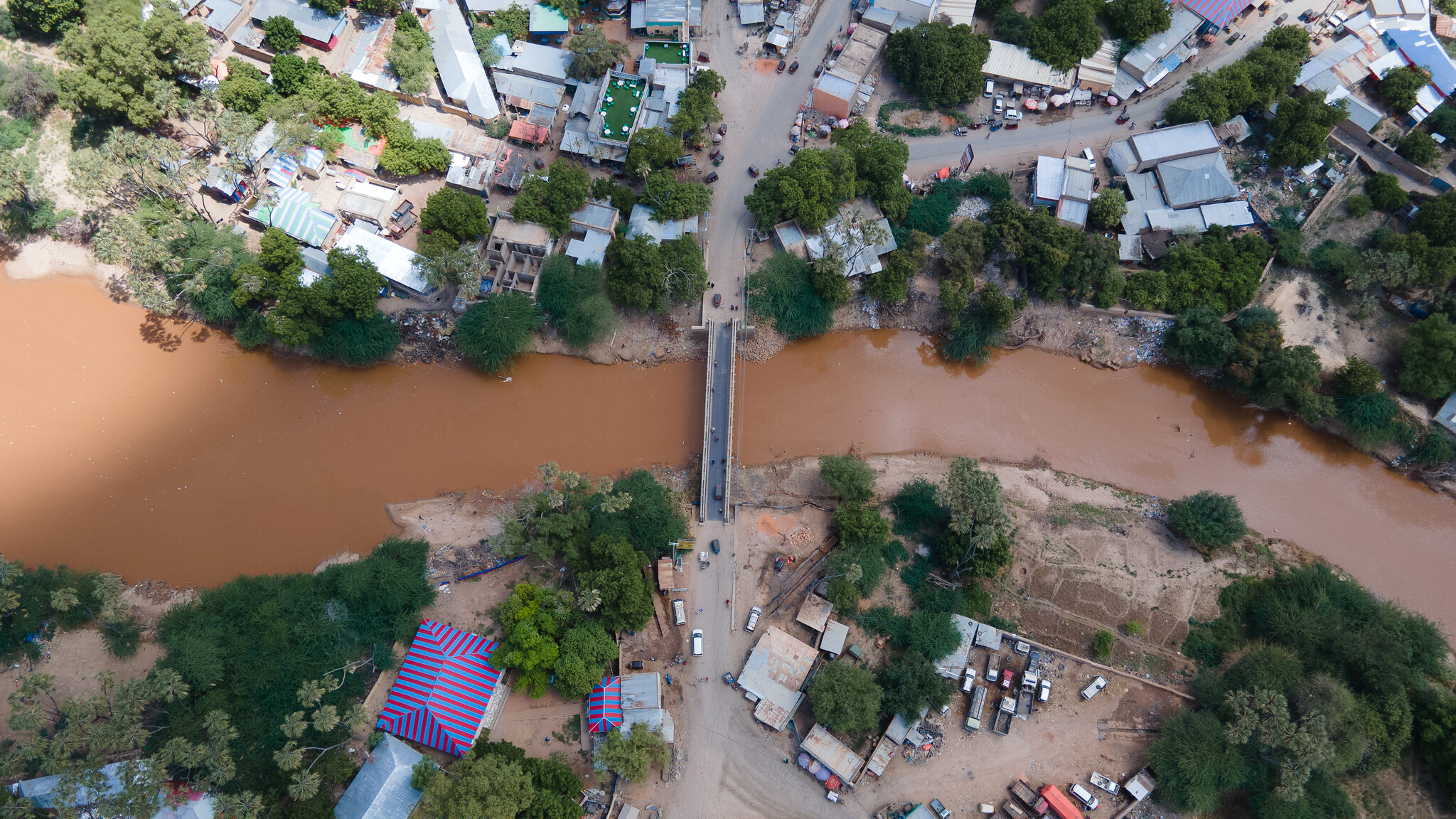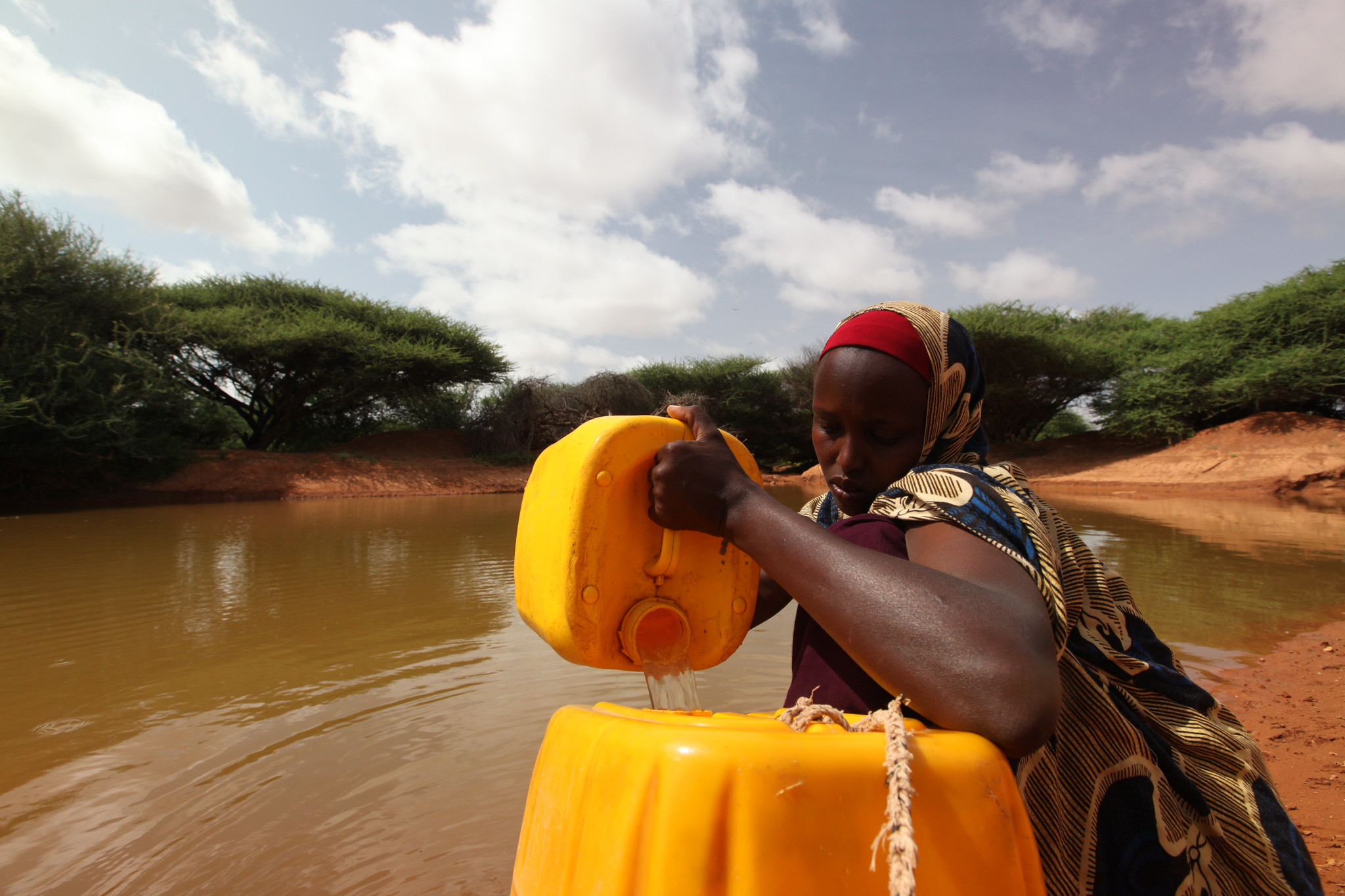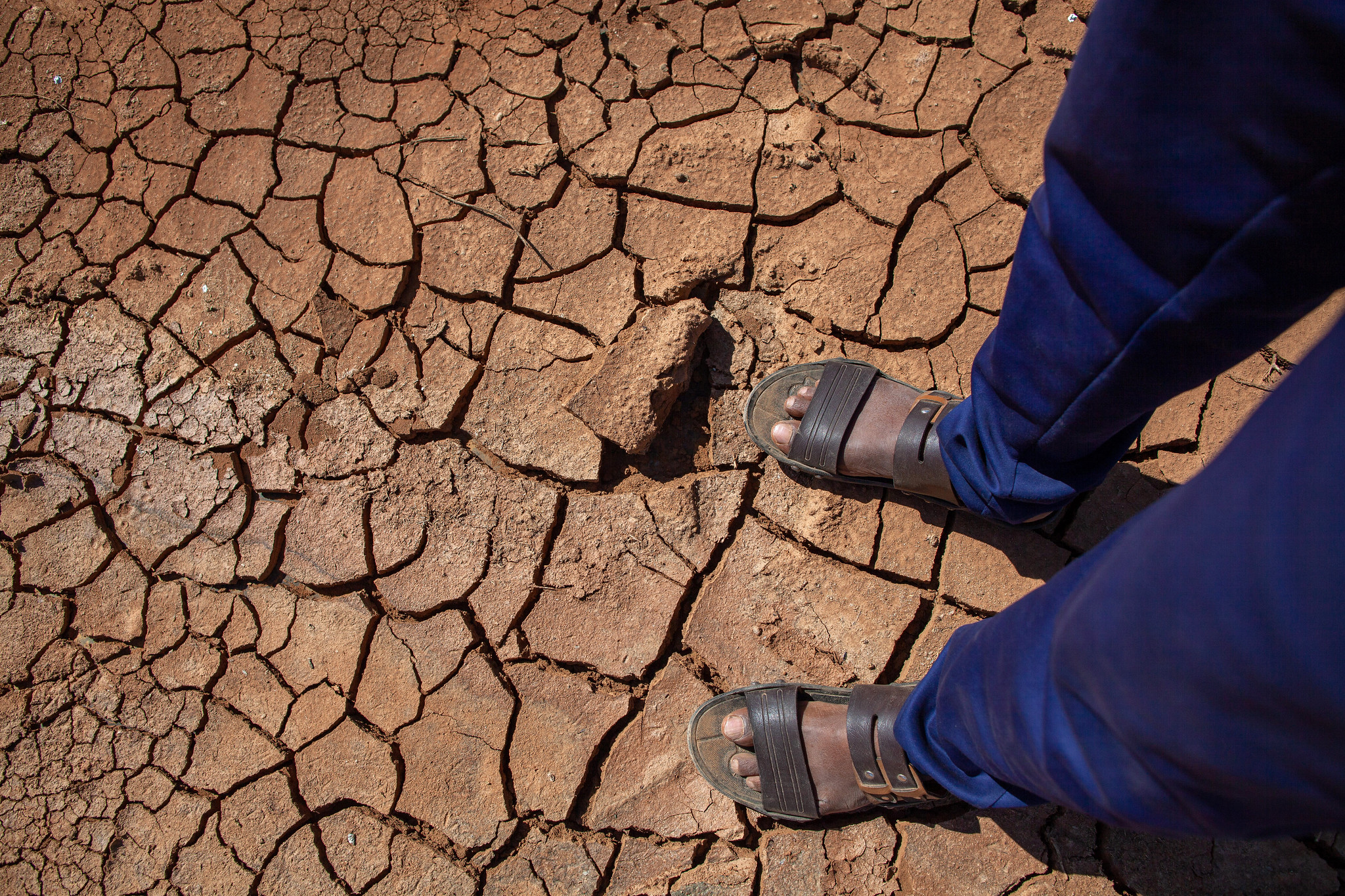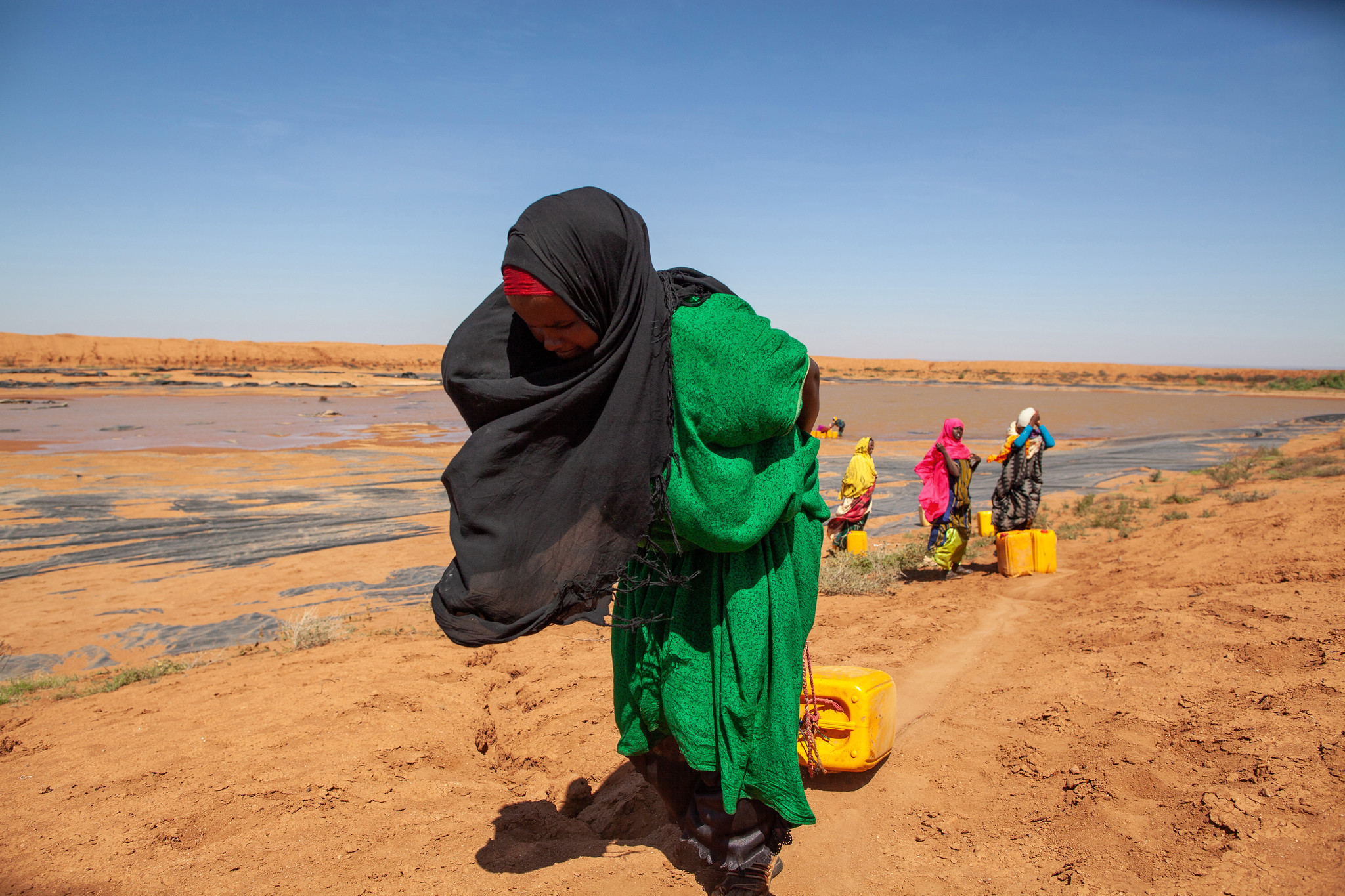Navigating the crossroads of climate change, peace and security in Somalia
February 15, 2024

The Shebelle River divides Beledweyne, Somalia making the city’s residents especially vulnerable to floods and drought stemming from climate change.
In the vibrant heart of Somalia, where traditions and history flourish despite numerous adversities, the looming spectre of climate change’s impact on peace, security and stability has grown impossible to ignore. This nation with a rich history has faced formidable challenges, from prolonged civil unrest to climate-induced adversities, including flooding and drought. In recent times, the growing impact of climate change has accentuated the interconnectedness of climate, peace, security, and stability in the region.
Unraveling the intricate dance
Climate change is not merely an environmental issue, it is also a driver of conflicts and insecurity. The region is experiencing more frequent and severe droughts, floods, and extreme weather, which has far-reaching consequences on livelihoods and resources. Droughts lay waste to agricultural and water sources, sparking competition for dwindling resources and threatening traditional ways of life. This scarcity incites intercommunal tensions and conflict over grazing lands and water. The tight-knit relationship between climate impacts and conflict underpins the necessity for effective policies and interventions.
UNDP and the Climate Security Mechanism (CSM) have been actively engaged in Somalia to address the intertwined challenges. Working with local partners such as the Berghof Foundation and Save the Children and communities across federal member states, UNDP has been analyzing climate-related security risks, and piloting community-based action plans. The focus is on reducing risks and assessing opportunities for internally displaced persons, returnees, ex-combatants, vulnerable women and young people to avert conflict and prevent the strengthening of non-state armed groups.
Communities on the frontline

A Somali woman drawing water from one of the many man-made ponds dug through a UNDP-supported initiative to bring water to drought-affected communities.
Local communities grapple with the harsh realities of climate change, but are passionate about working together to forge a brighter future. In Beledweyne, the community-based climate security action plans revealed that prolonged water shortages due to droughts have escalated individual disputes into clan conflicts driven by the desperate struggle for survival, but in several cases people have banded together to share funds, resources and minimize loss of lives and animals. However, once the immediate crisis subsides and norms are re-established, conflict re-emerges, revealing a cyclical pattern of strife. Consultations with the community have emphasized the importance of nurturing social cohesion, mediation, and dialogue to alleviate climate-related disputes.
To this end, Somalia and UNDP is working on improving the management of water supplies to build early warning systems hoping to benefit more than 360,000 farmers. As the effects of climate change are reducing water supply and are expected to exacerbate conflict, the project aims to ensure institutions and communities are more resilient to climate impacts.

A pastoralist stands on cracked earth in a rural area that has been severely affected by drought.
Somalia’s youth powerhouse
Whether bustling cities or remote villages, young voices resonate with optimism and determination. Somali youth, representing approximately 70 percent of the population under the age of 30, have emerged as a formidable force of change. Their resilience and determination offer a beacon of hope for a peaceful and sustainable Somalia. Harnessing their energy and potential is pivotal to inspiring positive change, fostering innovation, and building peace from the grassroots level.
''Empowering Somali youth as climate change champions is an investment in their future and the resilience of their communities, as they intimately understand the interconnections between environmental degradation, conflict, and social stability.”- Abdiladif Hussein Omar, Founder and Executive Director of Action for Environment
The young populations’ sheer numbers and eagerness to engage in climate security discourse are encouraging. In Beledweyne, 27 percent of the participants in community consultations were youth, and during a climate security workshop in Mogadishu, it was 30 percent.
UNDP, with the support of SIDA, supported Somali youth representatives at COP27, amplifying their voices in global climate action and highlighting the need for peace-positive climate adaptation and mitigation.
Women must play a central role
Women in Somalia play a crucial role in their families and communities, often taking on multiple responsibilities. Their contributions to climate action, peacebuilding and community development are invaluable, yet their potential remains largely untapped. Although representing half of the population, women make up only 21.2 percent of the labour force participation and 19.7 percent of national parliament seats.
Collaborating closely with the newly established Ministry of Environment and Climate Change in Somalia and their first minister, Khadija Mohamed Al-Makhzoumi, UNDP, with backing from the Green Climate Fund, has provided assistance to the government through a National Adaptation Plan (NAP) Readiness Project. This initiative focuses on enhancing Somalia's ability to coordinate and build capacity for climate change adaptation at both the national and regional levels. Through the first Adaptation Communication to the UNFCCC, the government notes the NAP process as a pivotal avenue to harmonize climate change planning with the nation's overarching goals of development and peacebuilding. As a part of the responses, women must be empowered in addressing climate change and gender issues raised in the NAP. This commitment extends to broader national endeavours aimed at reconstructing the country after enduring years of civil strife and instability.

Local pastoralists collect water from a UNDP/GEF-funded dam in a drought-affected rural area.
Forging a resilient future
From crafting climate security community action plans to hosting youth consultations and working with the government, UNDP’s work in Somalia is directed towards a resilient foundation in the face of the impacts of climate change on peace, security and stability. Lasting peace and inclusive development are at the heart of these initiatives.
"The journey towards a resilient and peaceful Somalia requires the active engagement and participation of both youth and women. By empowering these segments of society through education, skill development, and inclusion in decision-making processes, we can unlock their potential as agents of change to chart their own future together with all Somalis; a future where sustainable practices are the norm, natural resources are managed judiciously, and inclusivity prevails; a future of hope and opportunities, prosperous and secure for all that leaves no one behind."- Lionel Laurens, Resident Representative, UNDP Somalia

 Locations
Locations






